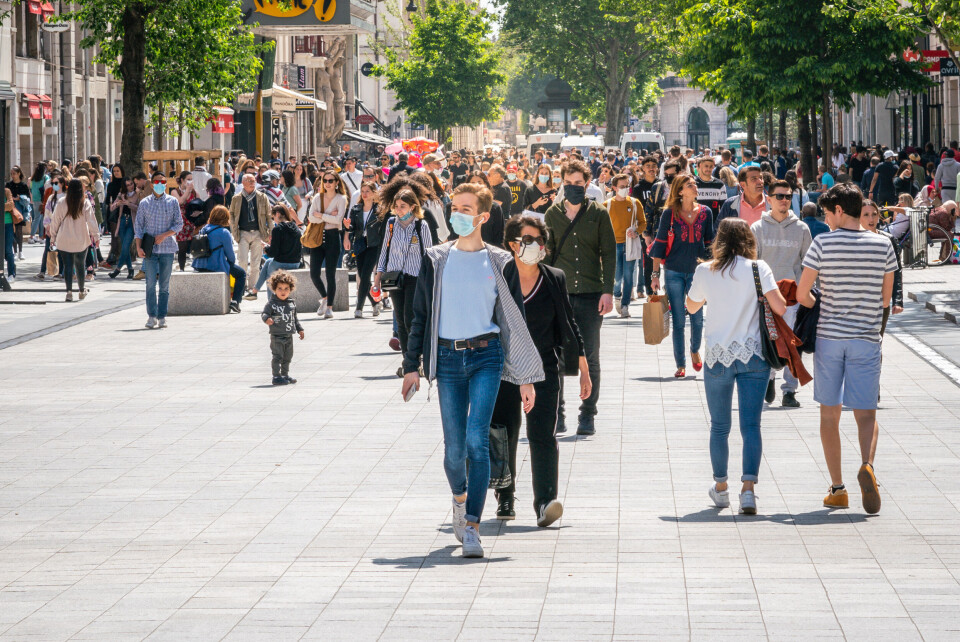-
High demand for relaunch of Ryanair’s new London - France route
Many UK residents own second homes in region
-
Visa delivery policy review ordered by French PM
Mr Bayrou asserted that France in 2024, had immigration had hit an 'unprecedented level'
-
Which fruits, vegetables and fish are in season in France this April?
Strawberry season begins, compensating for end of winter vegetables
Covid cases falling in France but professor says ‘pandemic not over’
Better systems must be put in place to anticipate future variants of the virus, says an epidemiologist at the University of Geneva

The number of Covid cases, hospitalisation and intensive care unit admissions in France continues to decrease as the Omicron wave subsides, official figures show.
It comes as Antoine Flahault, an epidemiologist and director of the Institute of Global Health at the University of Geneva, warns that the pandemic is not yet over and that France must do better to anticipate future variants of the virus.
The average number of positive tests returned over the past seven days is down nearly 30% compared to last week, with 54,011 cases compared to 57,186 on Friday and 76,130 the Sunday prior*.
At the beginning of April, over 130,000 cases a day were being reported.
There are now 23,327 patients in hospital with Covid, including 208 new admissions. This is down from 24,888 and 372 admission last Sunday (April 24).
Additionally, there are now fewer patients in ICU wards for Covid, down to 1,557 this week compared to 1,640 one week before. The number of new admittances is also down to 19, from 35 last Sunday.
‘Better anticipation is crucial’
Despite this improvement, Professor Flahault says that “we have not yet finished with the Covid pandemic”.
“Yes, all over Europe the epidemiological indicators are favourable, and our countries are reporting a fairly rapid decline in this wave,” he told Ouest-France today (May 2).
“That said, viral circulation is still at a very high level, as this latest wave reached unprecedented heights.”
He said that there is a possibility that other variants of Covid could appear.
“It is crucial to better anticipate this phenomenon and to build more effective responses that better protect us from the transmission of this virus and its variants,” he said.
“Let us remember that this is an almost exclusively aerosol-transmitted virus and that the best prevention against infection remains the improvement of indoor air quality, in which few governments, apart from in Belgium and the US, have really invested.”
Return to work for unvaccinated healthcare workers?
Elsewhere, President Emmanuel Macron has hinted at soon allowing unvaccinated healthcare workers to return to their work without needing proof of vaccination.
“If the figures continue to go down in the next few weeks, we will go in that direction,” Mr Macron said on Friday (April 29).
Although he added that, with regards to the staff who have chosen to be vaccinated and who have “made the ethical effort”, it will not be possible to reinstate unvaccinated workers “immediately”.
Around 15,000 healthcare workers have not shown proof of vaccination and have therefore not been working or receiving salary since last September.
Mr Macron already suggested back in April that he may reconsider the rules around allowing unvaccinated healthcare workers back to work.
*These figures have been averaged out over the course of the seven previous days so as to account for any discrepancies that could occur when posting daily figures.
Related articles
Covid-19: Rules for travel to and from France
Coronavirus: Daily updates on the situation in France
Can non-residents be vaccinated against Covid in France?
























